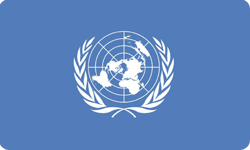Australia's human rights report card
 Rachel Ball
Rachel Ball
In the first half of 2009, two United Nations committees issued report cards on the state of human rights in Australia, following extensive reviews of Australia’s compliance with the International Covenant on Civil and Political Rights and the International Covenant on Economic, Social and Cultural Rights.
The UN Human Rights Committee — reviewing Australia’s compliance with the ICCPR and reporting in March 2009 — commented on, among other things, the incompatibility of aspects of Australian counter-terrorism laws with fundamental human rights, the excessive use of force by police without adequate oversight, and the need to increase access to justice and legal aid.
In May 2009, the Committee on Economic, Social and Cultural Rights recommended that Australia increase its levels of international development assistance and address the high unemployment rates among Indigenous people, asylum seekers, migrants and people with disabilities. For the first time that committee addressed the human rights implications of climate change, recommending that Australia introduce carbon reduction schemes and take measures to mitigate the adverse consequences of climate change.
Significantly, both committees commented on the need for Australia to do better in addressing violence against women, Indigenous disadvantage and homelessness, and on the need to reform the immigration system to ensure that it complies with human rights standards, including by ending mandatory immigration detention.
Both committees welcomed the National Consultation on Human Rights and reminded the Australian Government of its obligation to ensure that human rights are protected through the enactment of comprehensive human rights and equality legislation.
The findings of these committees, known as concluding observations, were significantly informed and influenced by Australian civil society’s involvement in the review process (see Liberty News, Issue 3). The task now is to ensure that the concluding observations are brought to life through community education and government action.
The Federal Government has already taken action on several of the issues raised by the committees — for example, by introducing a bill to enhance protections for victims of trafficking and by announcing support for a taxpayer-funded paid parental leave scheme. However, there remains much more to be done to ensure adequate protection and promotion of human rights in Australia. In the next few years, the concluding observations should be used as a roadmap for the Government, non-government organisations and the community to guide the improvement of human rights in Australia.
Rachel Ball is a Liberty Victoria committee member and a lawyer for the Human Rights Law Resource Centre (www.hrlrc.org.au).
